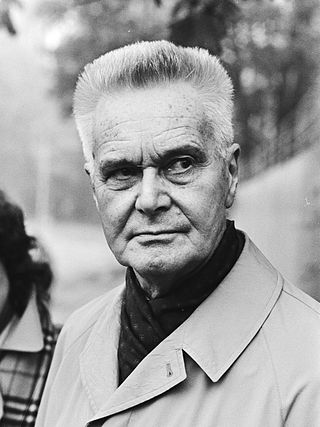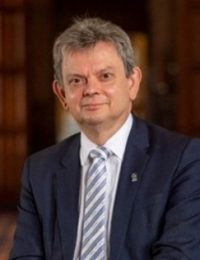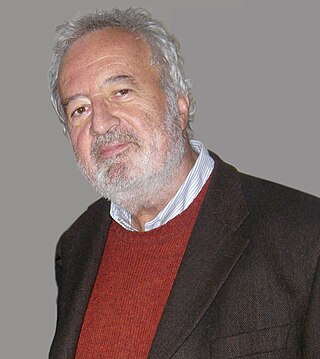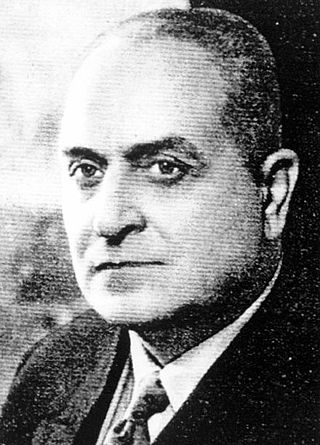
An economic and monetary union (EMU) is a type of trade bloc that features a combination of a common market, customs union, and monetary union. Established via a trade pact, an EMU constitutes the sixth of seven stages in the process of economic integration. An EMU agreement usually combines a customs union with a common market. A typical EMU establishes free trade and a common external tariff throughout its jurisdiction. It is also designed to protect freedom in the movement of goods, services, and people. This arrangement is distinct from a monetary union, which does not usually involve a common market. As with the economic and monetary union established among the 27 member states of the European Union (EU), an EMU may affect different parts of its jurisdiction in different ways. Some areas are subject to separate customs regulations from other areas subject to the EMU. These various arrangements may be established in a formal agreement, or they may exist on a de facto basis. For example, not all EU member states use the Euro established by its currency union, and not all EU member states are part of the Schengen Area. Some EU members participate in both unions, and some in neither.

Post-Keynesian economics is a school of economic thought with its origins in The General Theory of John Maynard Keynes, with subsequent development influenced to a large degree by Michał Kalecki, Joan Robinson, Nicholas Kaldor, Sidney Weintraub, Paul Davidson, Piero Sraffa and Jan Kregel. Historian Robert Skidelsky argues that the post-Keynesian school has remained closest to the spirit of Keynes' original work. It is a heterodox approach to economics.
Rüdiger Dornbusch was a German economist who worked in the United States for most of his career.

Jan Tinbergen was a Dutch economist who was awarded the first Nobel Memorial Prize in Economic Sciences in 1969, which he shared with Ragnar Frisch for having developed and applied dynamic models for the analysis of economic processes. He is widely considered to be one of the most influential economists of the 20th century and one of the founding fathers of econometrics.

A macroeconomic model is an analytical tool designed to describe the operation of the problems of economy of a country or a region. These models are usually designed to examine the comparative statics and dynamics of aggregate quantities such as the total amount of goods and services produced, total income earned, the level of employment of productive resources, and the level of prices.
Henri (Hans) Theil was a Dutch econometrician and professor at the Netherlands School of Economics in Rotterdam, known for his contributions to the field of econometrics.

Federico Caffè was a notable Italian economist from the Keynesian School.
Macroeconomic policy instruments are macroeconomic quantities that can be directly controlled by an economic policy maker. Instruments can be divided into two subsets: a) monetary policy instruments and b) fiscal policy instruments. Monetary policy is conducted by the central bank of a country or of a supranational region. Fiscal policy is conducted by the executive and legislative branches of the government and deals with managing a nation’s budget.
Robert Graham King is an American macroeconomist. He is currently professor at the Department of Economics at Boston University, editor of the Journal of Monetary Economics, research consultant to the Federal Reserve Bank of Richmond, and a member of the National Bureau of Economic Research.

Paul Davidson is an American macroeconomist who has been one of the leading spokesmen of the American branch of the post-Keynesian school in economics. He is a prolific writer and has actively intervened in important debates on economic policy from a position critical of mainstream economics.

Jordi Galí is a Spanish macroeconomist who is regarded as one of the main figures in New Keynesian macroeconomics today. He is currently the director of the Centre de Recerca en Economia Internacional at Universitat Pompeu Fabra and a Research Professor at the Barcelona Graduate School of Economics. After obtaining his doctorate from MIT in 1989 under the supervision of Olivier Blanchard, he held faculty positions at Columbia University and New York University before moving to Barcelona.

Sir Vito Antonio Muscatelli is the Principal of the University of Glasgow and one of the United Kingdom's top economists.

Frank Horace Hahn FBA was a British economist whose work focused on general equilibrium theory, monetary theory, Keynesian economics and critique of monetarism. A famous problem of economic theory, the conditions under which money, which is intrinsically worthless, can have a positive value in a general equilibrium, is called "Hahn's problem" after him. One of Hahn's main abiding concerns was the understanding of Keynesian (Non-Walrasian) outcomes in general equilibrium situations.

Jean-Paul Fitoussi was a French economist and sociologist of Sephardi Jewish descent.

Franco Archibugi was an Italian scholar in political, economic and social sciences, university professor in economic policy and spatial planning. He largely operated in Italy and in international governmental agencies; including in the field of economic development, social welfare and cooperation policy. Archibugi was the author of several works in planning theory and methodology, and was among the theorists and promoters of a new unitary discipline of planning – the “Planology” – aimed at creating a bridge between the theoretical scientific progress in economics and other social sciences with the actual political and administrative efficiency and management. After retiring from academia, he was still an active researcher as President of the Planning Studies Centre. He died in Rome in November 2020 at the age of 94.

Fernando Vianello was an Italian economist and academic. Together with Michele Salvati, Sebastiano Brusco, Andrea Ginzburg and Salvatore Biasco, he founded the Faculty of Economics of the University of Modena and Reggio Emilia.

Larry Randall Wray is a professor of Economics at Bard College and Senior Scholar at the Levy Economics Institute. Previously, he was a professor at the University of Missouri–Kansas City in Kansas City, Missouri, USA, whose faculty he joined in August 1999, and a professor at the University of Denver, where he served from 1987 to 1999. He has served as a visiting professor at the University of Rome, Italy, the University of Paris, France, and the UNAM, in Mexico City. From 1994 to 1995 he was a Fulbright Scholar at the University of Bologna. From 2015 he is a Visiting professor at the University of Bergamo, located in Italy. He was a visiting professor at Masaryk University in the Czech Republic.
Andrew Jonathan Hughes Hallett FRSE was a British economist. He was University Professor of Economics and Public Policy at George Mason University, Senior Research Fellow at Kings College and Honorary Professor of Economics at the University of St Andrews He was also a member of the Scottish Growth Commission.

Giancarlo Corsetti, is an Italian macroeconomist and Professor of Macroeconomics at the European University Institute in Florence. He is best known in academia for his work on open economy macroeconomics and international economics. In March 2017, the IDEAS/RePEc overall ranking put him as the most influential economist at Cambridge University where he was teaching at the time.

Gustavo Del Vecchio was an Italian economist, politician, and academic.














